- Browse
- Banking
Results for "banking"
 Status: Free TrialFree TrialU
Status: Free TrialFree TrialUUniversità di Napoli Federico II
Skills you'll gain: NoSQL, Control Systems, Apache Hadoop, Apache Hive, Big Data, Simulation and Simulation Software, Mechanical Design, Database Systems, Artificial Intelligence, Mechanical Engineering, Computer Vision, Laboratory Experience, Databases, Systems Architecture, Distributed Computing, Simulations, Global Positioning Systems, Business Intelligence, Robotics, Automation
4.3·Rating, 4.3 out of 5 stars78 reviewsBeginner · Specialization · 1 - 3 Months
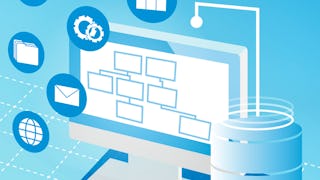 Status: Free TrialFree TrialU
Status: Free TrialFree TrialUUniversity of California, Irvine
Skills you'll gain: Decision Support Systems, Database Design, Relational Databases, Database Management, Database Management Systems, SQL, Descriptive Statistics, Data Literacy, Statistics, Statistical Analysis, Business Intelligence, Microsoft Excel, Extract, Transform, Load, Data-Driven Decision-Making, Business Analytics, Data Manipulation, Data Science
4.5·Rating, 4.5 out of 5 stars102 reviewsBeginner · Course · 1 - 4 Weeks
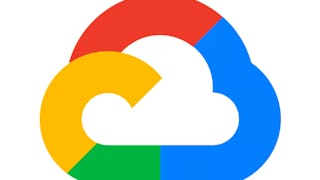
Skills you'll gain: Dashboard, Kibana, Google Cloud Platform, Cloud Computing, Data Import/Export, Financial Data, Mainframe Computing, Dataflow, Big Data, Exploratory Data Analysis, SQL, Data Analysis
Beginner · Project · Less Than 2 Hours
 Status: Free TrialFree TrialF
Status: Free TrialFree TrialFFundação Instituto de Administração
Skills you'll gain: Capital Markets, Financial Systems, Financial Market, Financial Regulation, Financial Policy, Financial Trading, Market Data, Investments, Banking, Financial Services, Economics
4.9·Rating, 4.9 out of 5 stars15 reviewsBeginner · Course · 1 - 4 Weeks
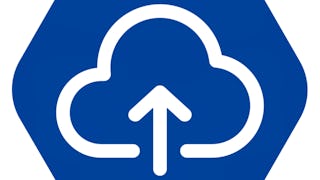 L
LLearnQuest
Skills you'll gain: Microsoft Azure, Big Data, Data Processing, Analytics, Data Pipelines, Databricks, Apache Spark, Business Intelligence, Data Analysis, Data Integration, Data Warehousing, Extract, Transform, Load, Real Time Data, Data Transformation, Scheduling, Data Storage
3.7·Rating, 3.7 out of 5 stars67 reviewsIntermediate · Course · 1 - 3 Months
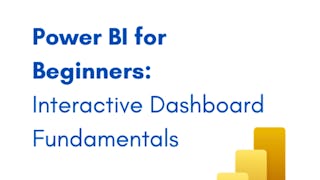 Status: FreeFree
Status: FreeFreeSkills you'll gain: Key Performance Indicators (KPIs), Power BI, Dashboard, Data Visualization, Interactive Data Visualization, Data Storytelling, Data Presentation, Business Metrics, Performance Analysis, Data Visualization Software, Data Import/Export, Business Intelligence, Regional Sales, Sales Presentation
4.7·Rating, 4.7 out of 5 stars55 reviewsBeginner · Guided Project · Less Than 2 Hours
 Status: Free TrialFree Trial
Status: Free TrialFree TrialSkills you'll gain: Stakeholder Engagement, Business Analysis, Business Intelligence, Business Process, Business Planning, Stakeholder Analysis, Business Process Management, Requirements Elicitation, Analysis, Information Technology, Agile Methodology, Planning, Governance, Information Management, Adaptability
4.7·Rating, 4.7 out of 5 stars85 reviewsIntermediate · Course · 1 - 4 Weeks

Skills you'll gain: Unit Testing, Go (Programming Language), Restful API, Authentications, Application Programming Interface (API), Secure Coding, API Design, Application Security, Software Testing, Microservices, Authorization (Computing), Database Development, Web Servers, Server Side, Databases, Software Architecture, JSON, Role-Based Access Control (RBAC), Maintainability, Software Design Patterns
Intermediate · Course · 1 - 3 Months
 Status: Free TrialFree TrialU
Status: Free TrialFree TrialUUniversity of Maryland, College Park
Skills you'll gain: Product Lifecycle Management, Enterprise Architecture, Product Management, Product Strategy, User Research, New Product Development, Scalability, Lean Methodologies, Product Roadmaps, User Centered Design, Product Development, Growth Strategies, Market Opportunities, Innovation, Case Studies, Market Research
Beginner · Course · 1 - 3 Months
 Status: Free TrialFree TrialU
Status: Free TrialFree TrialUUniversity of Illinois Urbana-Champaign
Skills you'll gain: Classification Algorithms, Business Analytics, Data Preprocessing, Regression Analysis, Applied Machine Learning, Scikit Learn (Machine Learning Library), Unsupervised Learning, Business Intelligence, Predictive Modeling, Machine Learning, Python Programming, Decision Tree Learning, Supervised Learning, Model Evaluation
Build toward a degree
4.6·Rating, 4.6 out of 5 stars40 reviewsIntermediate · Course · 1 - 4 Weeks
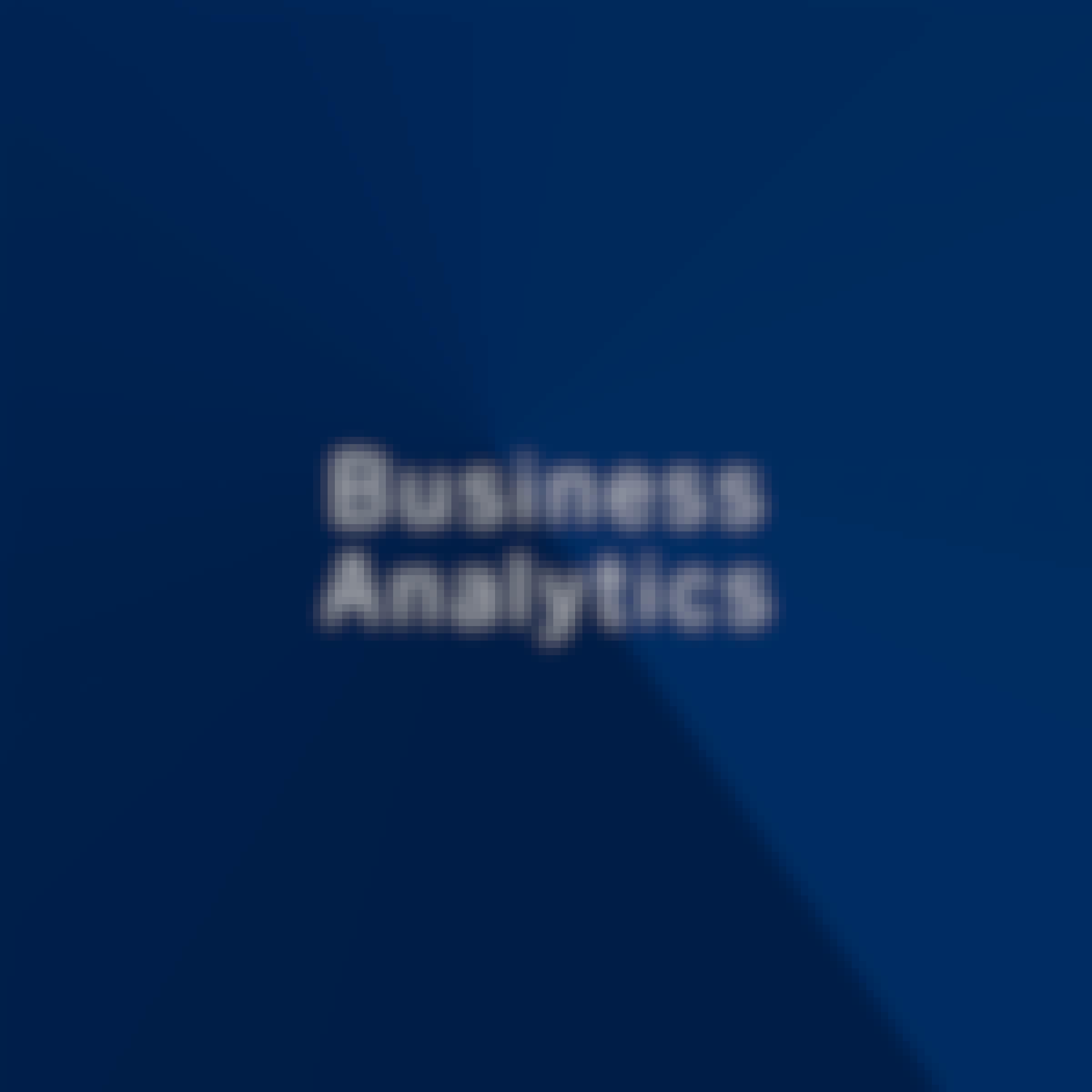 Status: PreviewPreviewC
Status: PreviewPreviewCCampus BBVA
Skills you'll gain: Data Storytelling, Dashboard, Business Analytics, Data Quality, Business Intelligence, Data Analysis, Descriptive Statistics, Data-Driven Decision-Making, Statistical Inference, Statistics, Big Data, Exploratory Data Analysis, Statistical Hypothesis Testing, Project Management Life Cycle, Probability Distribution
4.7·Rating, 4.7 out of 5 stars46 reviewsBeginner · Course · 1 - 3 Months
 Status: Free TrialFree TrialC
Status: Free TrialFree TrialCCorporate Finance Institute
Skills you'll gain: Data Analysis Expressions (DAX), Power BI, Data Modeling, Business Intelligence, Microsoft Excel, Excel Formulas, Pivot Tables And Charts, Data Analysis Software, Data Manipulation, Time Series Analysis and Forecasting
4.7·Rating, 4.7 out of 5 stars57 reviewsBeginner · Course · 1 - 3 Months
In summary, here are 10 of our most popular banking courses
- Autonomous Vehicle Engineering: Università di Napoli Federico II
- The Nature of Data and Relational Database Design: University of California, Irvine
- Offloading Financial Mainframe Data into BigQuery and Elastic Search: Google Cloud
- Estrutura e Funcionamento do Mercado: Fundação Instituto de Administração
- Data Processing with Azure: LearnQuest
- Power BI for Beginners: Interactive Dashboard Fundamentals: Coursera
- Business Analysis Mastery: Planning, Skills, and Perspective: Starweaver
- Building Microservices API in Go: Packt
- Lean Product Portfolios: Beyond Value Stream Mapping: University of Maryland, College Park
- Machine Learning Algorithms with Python in Business Analytics: University of Illinois Urbana-Champaign










